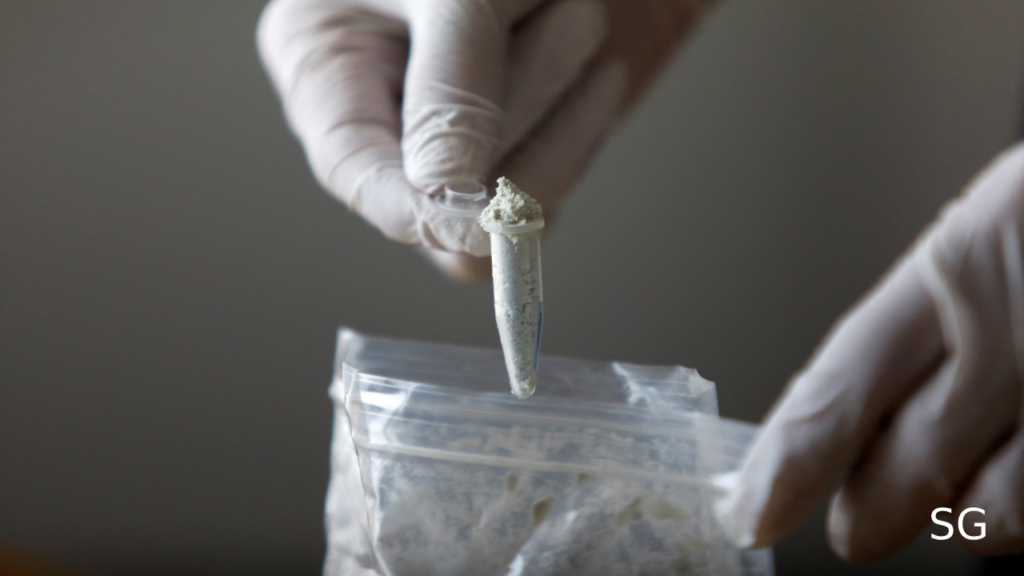Table of Contents

U.S. Aid Freeze Disrupts Mexico’s Fight Against Fentanyl
Halted UN Program at Mexican Ports
A United Nations program in Mexico aimed at preventing fentanyl precursor chemicals from reaching drug cartels has been stalled due to a sweeping foreign aid freeze ordered by U.S. President Donald Trump. This decision has disrupted multiple U.S. counter-narcotics initiatives in Mexico, including training and equipment support for Mexican authorities.
Impact on Port of Manzanillo
The initiative provided Mexico’s Navy with resources to enhance screening at the Port of Manzanillo, the country’s busiest container port. Plans to extend the program to Lazaro Cardenas and Veracruz have also been put on hold due to the funding freeze. The program, part of the Container Control Programme managed by the United Nations Office on Drugs and Crime (UNODC) and the World Customs Organization, was originally funded with $800,000 from the U.S.
Smuggling Challenges at Manzanillo
Manzanillo remains a key entry point for traffickers smuggling Chinese precursor chemicals used in synthetic opioids and methamphetamine. Despite U.S. investment, smuggling continues to be a significant challenge. The funding freeze has halted further training and equipment donations, including cargo scanners and drug-testing tools.
Broader Freeze on Anti-Narcotics Programs
The funding cutoff is part of a broader suspension of U.S.-funded anti-narcotics initiatives in Mexico, including training to dismantle clandestine fentanyl labs and donations of drug-sniffing canines. While some waivers have been issued to resume security programs, approximately $50 million of the State Department’s Bureau of International Narcotics and Law Enforcement Affairs (INL) budget for Mexico remains frozen.
Concerns Over U.S. Drug Overdose Crisis
Experts warn that cutting these programs could undermine efforts to address the U.S. opioid epidemic. Over the past decade, synthetic opioids have caused over 450,000 deaths in the U.S. The halted UN program had already assisted Mexican authorities in seizing large quantities of precursor chemicals.
Expansion Plans on Hold
Delayed Rollout to Veracruz and Lázaro Cárdenas
The initiative was expected to extend to the Port of Veracruz on the Gulf of Mexico and Lázaro Cárdenas on the Pacific, with an estimated cost of $1.5 to $2 million. Veracruz is an emerging route for fentanyl precursors arriving from Europe, highlighting the growing complexity of trafficking networks.
Potential Impact on Airport Cargo Screening
Discussions were also underway to introduce a similar UN program, AIRCOP, at Mexico City’s Benito Juárez International Airport. Authorities consider this expansion critical since many precursor chemicals are smuggled by air. The U.S. funding freeze now jeopardizes these plans.
Shifting U.S. Approach to Drug Trafficking
The aid suspension reflects a shift in U.S. strategy towards Mexican drug cartels. Recently, the Trump administration designated the Sinaloa and Jalisco New Generation cartels as foreign terrorist organizations, a move that some analysts suggest could lay the groundwork for more aggressive actions.
Mexico’s Response and Future Relations
Mexican President Claudia Sheinbaum has announced plans to propose a constitutional reform aimed at strengthening national sovereignty. These changes could further limit U.S. involvement in Mexico’s security operations.
The long-term impact of the U.S. funding freeze on counter-narcotics efforts remains uncertain. While intended to curb drug trafficking, the decision may ultimately hinder collaborative efforts and exacerbate the fentanyl crisis.
“U.S. Aid Freeze Disrupts Mexico’s Fight Against Fentanyl” “U.S. Aid Freeze Disrupts Mexico’s Fight Against Fentanyl” “U.S. Aid Freeze Disrupts Mexico’s Fight Against Fentanyl” “U.S. Aid Freeze Disrupts Mexico’s Fight Against Fentanyl” “U.S. Aid Freeze Disrupts Mexico’s Fight Against Fentanyl”